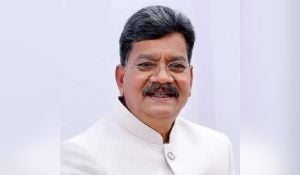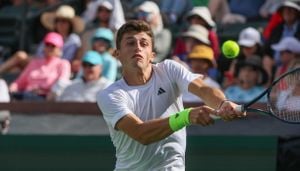Kendrick Lamar's electrifying performance at the Super Bowl 2025 halftime show on February 9, 2025, has stirred quite the buzz, especially as his longtime rival Drake was nowhere to be found—performing thousands of miles away in Melbourne, Australia. This twist of events seems to reignite the longstanding feud between the two rap giants, bringing their bitter rivalry back to the forefront of social discourse.
The Super Bowl LIX, held at the iconic Caesars Superdome, concluded with the Philadelphia Eagles decisively beating the Kansas City Chiefs 40-22. While the game may not have captured the excitement of previous years, it did provide the perfect backdrop for Kendrick Lamar's performance, which blended spectacle with pointed references aimed at Drake.
Kendrick, whose recent track "Not Like Us" has become the anthem for his supporters, used the halftime platform to take jabs at Drake. His song includes allegations about Drake's behavior, sparking much public scrutiny. During the performance, Lamar humorously remarked, "I want to play their favorite song, but you know they love to sue," effectively referencing Drake's current lawsuit against Universal Music Group (UMG) concerning the promotion of Lamar's diss track.
While Kendrick commanded the stage, Drake was across the globe, performing at his Anita Max Win Tour. This marked Drake's first tour stop since the beginning of February, just days after Lamar's Grammy wins for his popular diss track. During his Australian show, Drake expressed his continued presence, assuring fans, "I’m very much alive and that's all thanks to you. I love you." Akan derives the sentiments of both artists, highlighting the stark differences between their current paths.
The backdrop of their rivalry dates back to 2014, but escalated significantly last year with the release of several diss tracks exchanged between the two artists. Notably, after Lamar's Grammy wins, Drake's father dismissed Lamar's achievements by stating, "I don’t care enough about..." which clearly showcases the familial tensions intertwining with the feud.
Many were left pondering why Drake chose not to attend what could have been detrimental to Kendrick's performance. After all, the Super Bowl possesses unparalleled viewership worldwide. While the feud remains heated, both competitors seem to have their allegiances firmly mapped out: Kendrick incessantly pushing forward with his artistic vision and Drake simultaneously addressing his legal predicaments.
Though Drake's absence was evident, the conversation surrounding his decision to skip the event has not waned. Considering the harsh dynamics of stardom, one must wonder how this affects Drake's reputation, especially against the backdrop of the lawsuit filed against UMG. The lawsuit outlines claims of defamation and overshadowed regard for his artistic credibility.
To many fans, the feud encapsulates the very essence of conflict within the hip-hop genre—a sport where lyrical battles signify prowess and popularity. Following Kendrick's notable performance, cultural commentators have suggested he has set the stage not just for musical flair but for sparking conversations around the societal responsibilities rappers hold.
The tension culminated during the Super Bowl, especially with Kendrick bringing out SZA and former Drake love interest Serena Williams as guests, adding even more flair to his performance. These moments of collective interpretations and history depict the depth of rivalry and the barbed lines never truly disappear.
With significant chatter across social media platforms, Kendrick's halftime spectacle has been lauded. Fans chanted along with lines of his song, dissecting meanings both as fans of hip-hop and proponents of artistic freedom. Commentators like Lauren Beeching have articulated how Lamar has not only challenged Drake musically but damaged his character deeply—a sentiment felt by many observers.
So where does this leave Drake? Throughout his career, he has commanded the titles of one of the most-streamed artists. Now, he faces the danger of fading relevance within the ever-evolving music industry. His silence and absence from pivotal moments such as the Super Bowl may haunt him as Kendrick capitalizes on their discord. Only time remains for Drake to decide on his next move—one which might mark his triumphant return or yet another stumble on the competitive path he navigates.
The stage has been set, and the cultural weight of this moment will linger, provoking questions about the future arcs of both artists. For Kendrick, the victory lap appears well-deserved, whereas for Drake, it may lead toward necessary reflection on his place within the hip-hop hierarchy.



